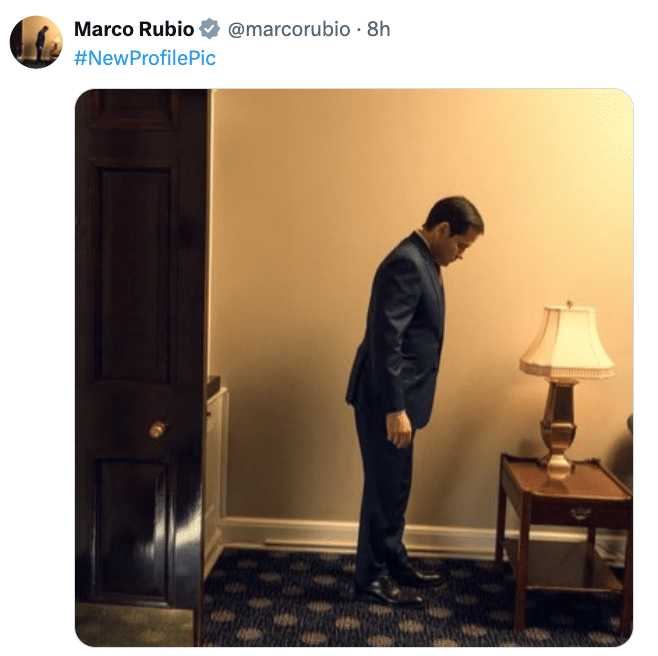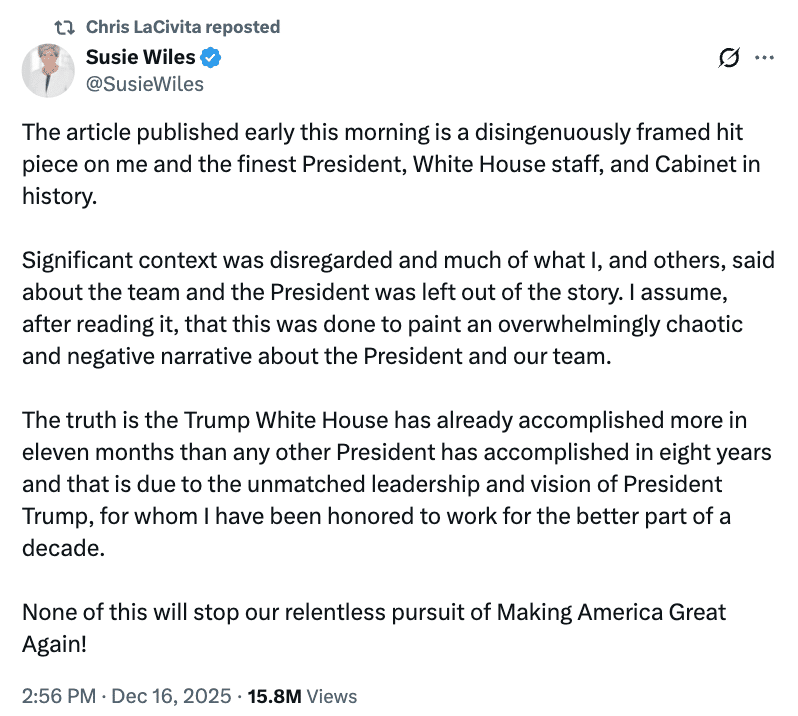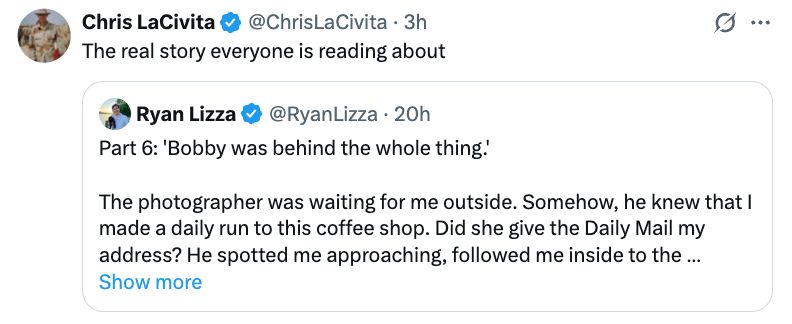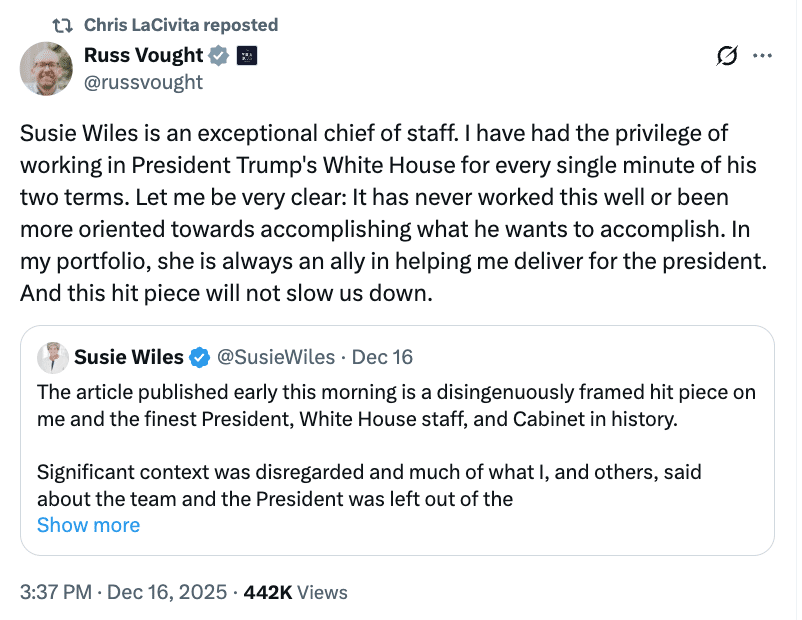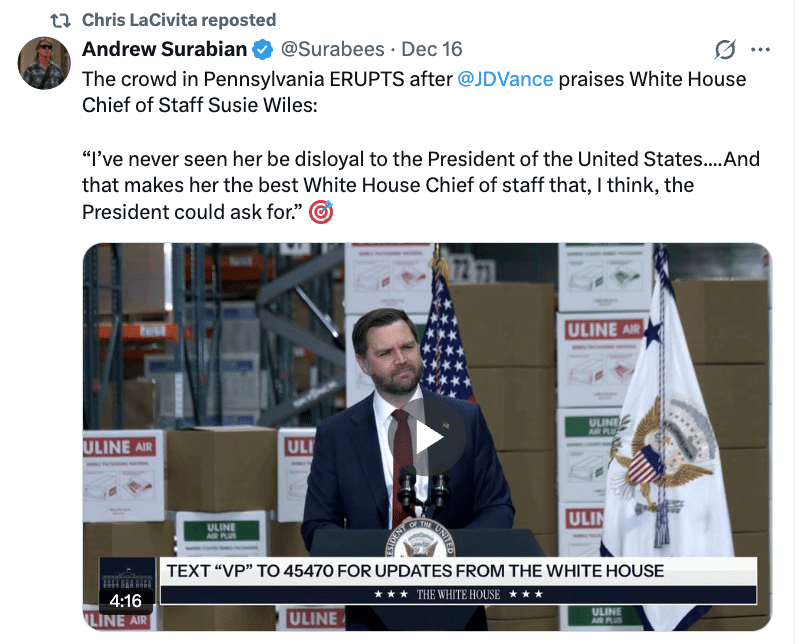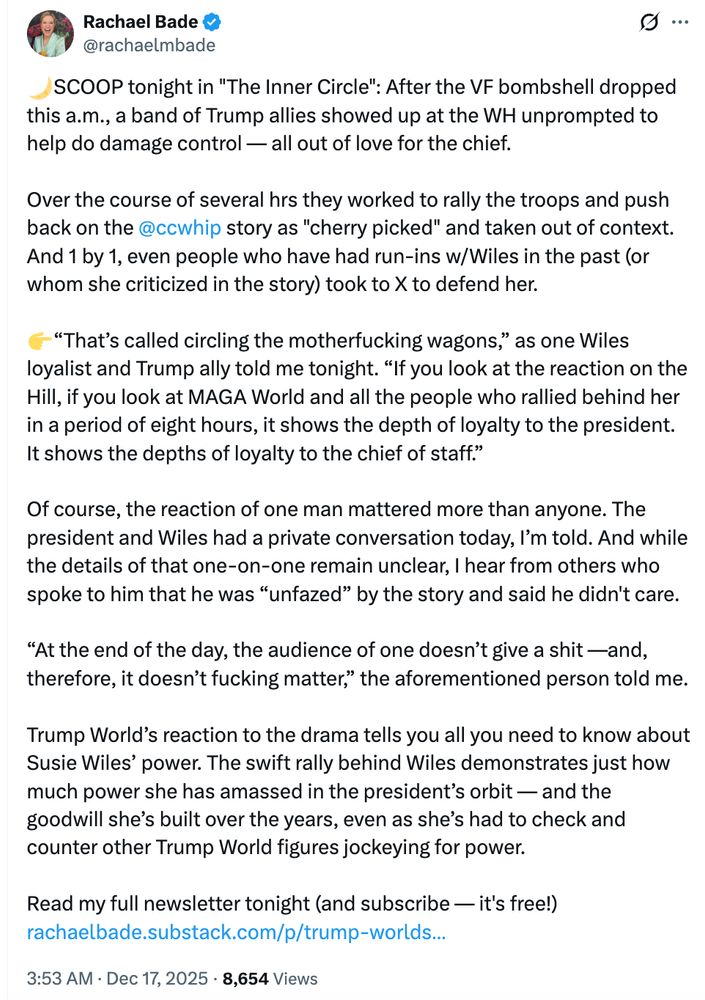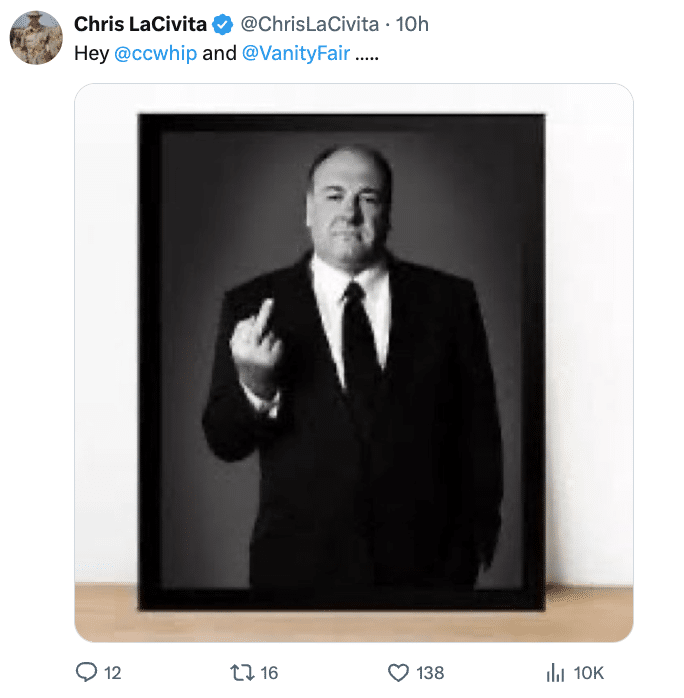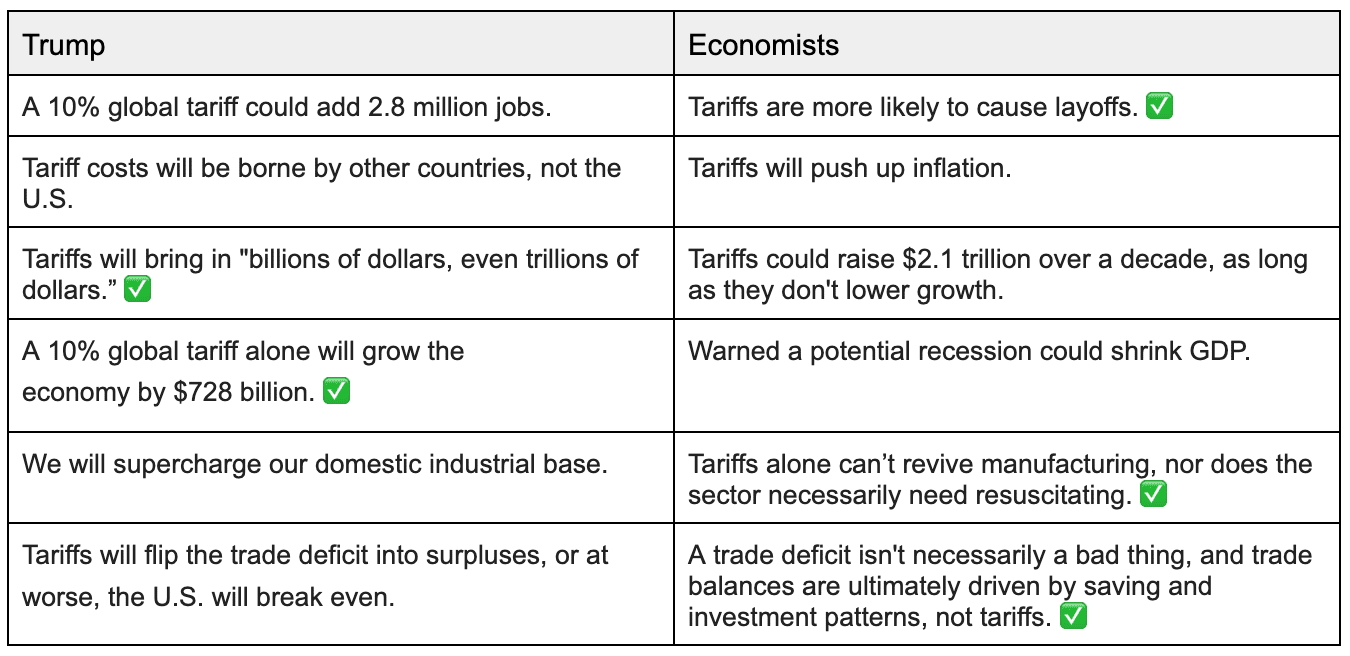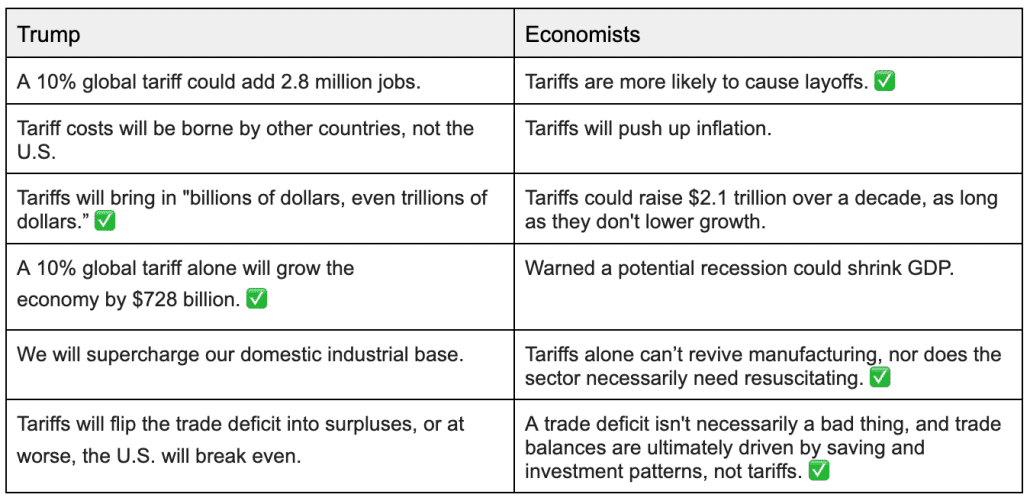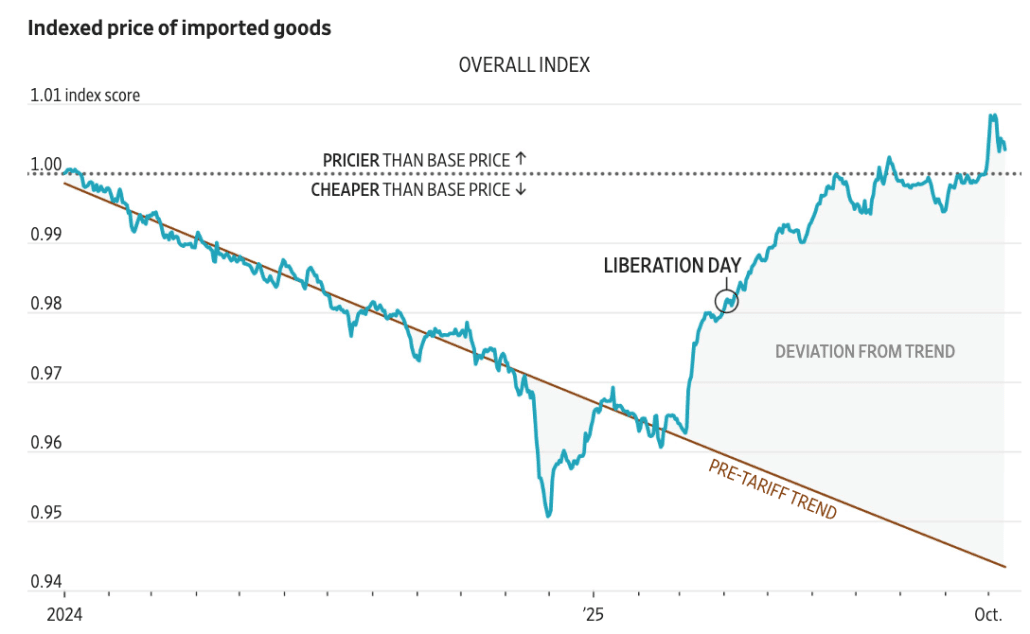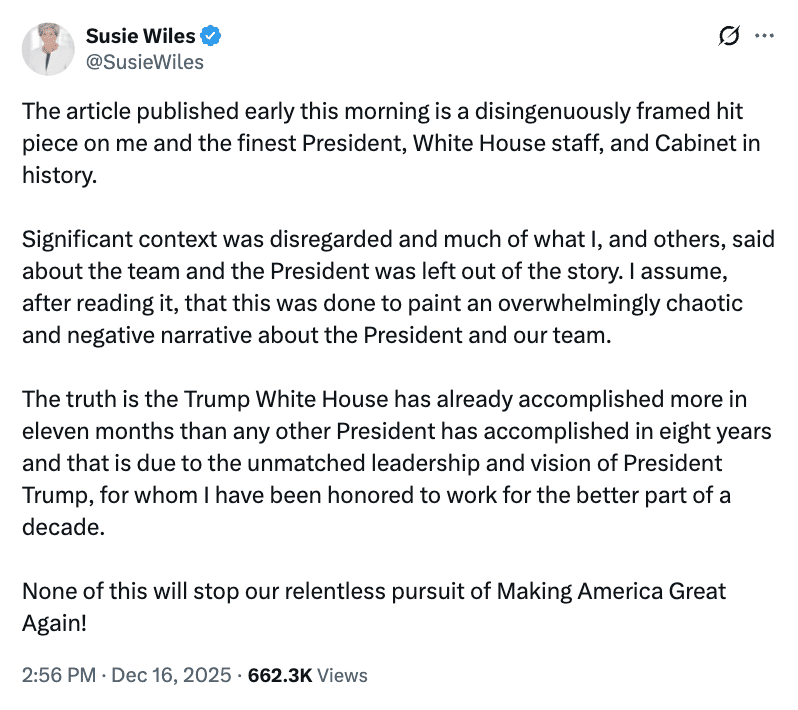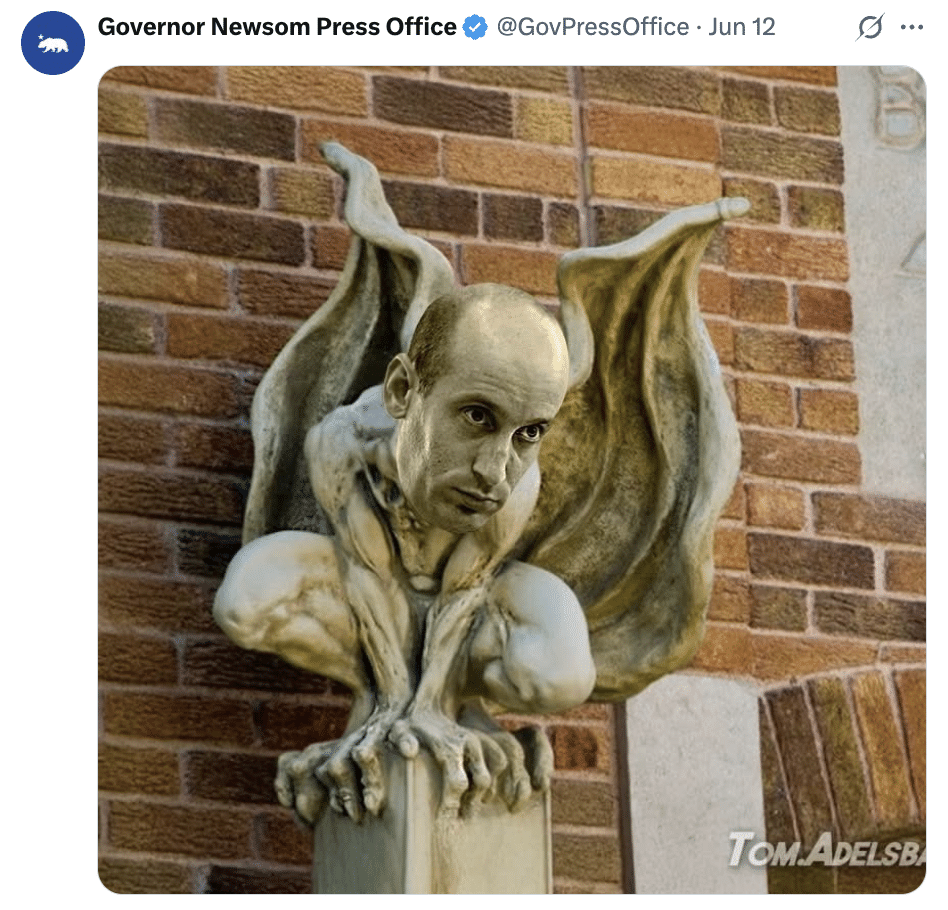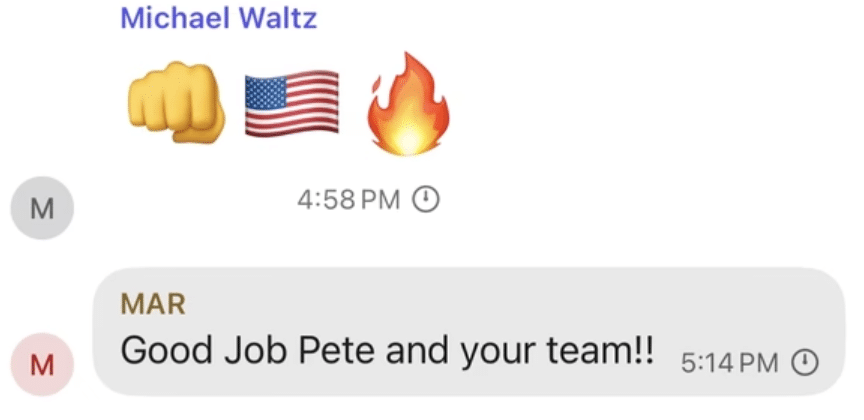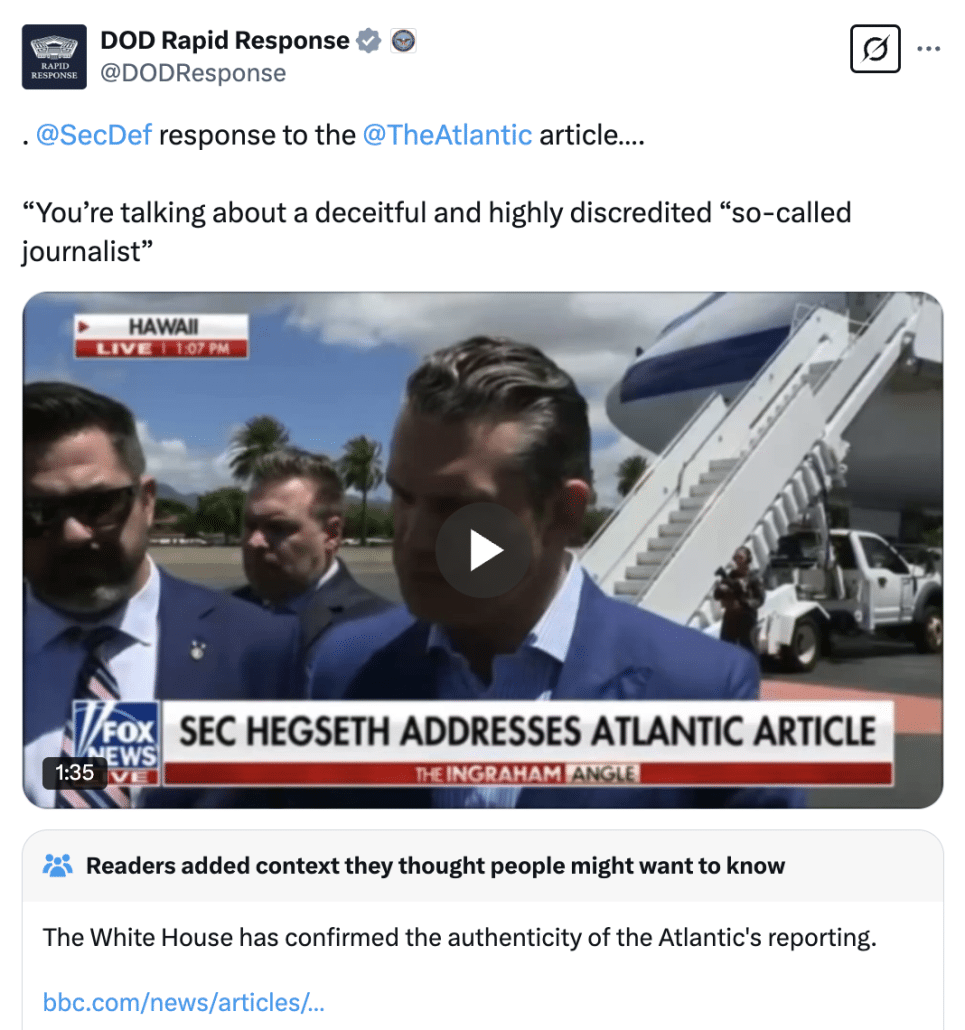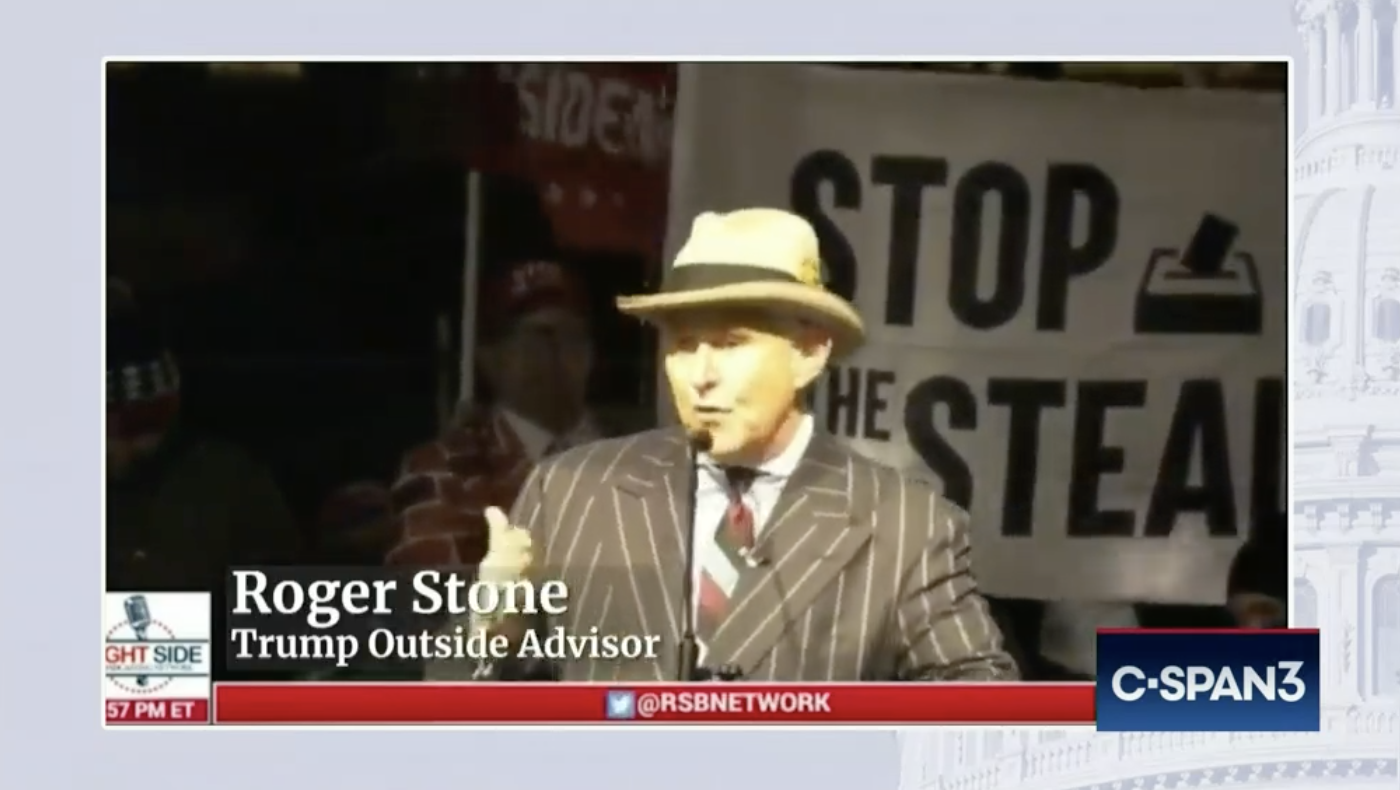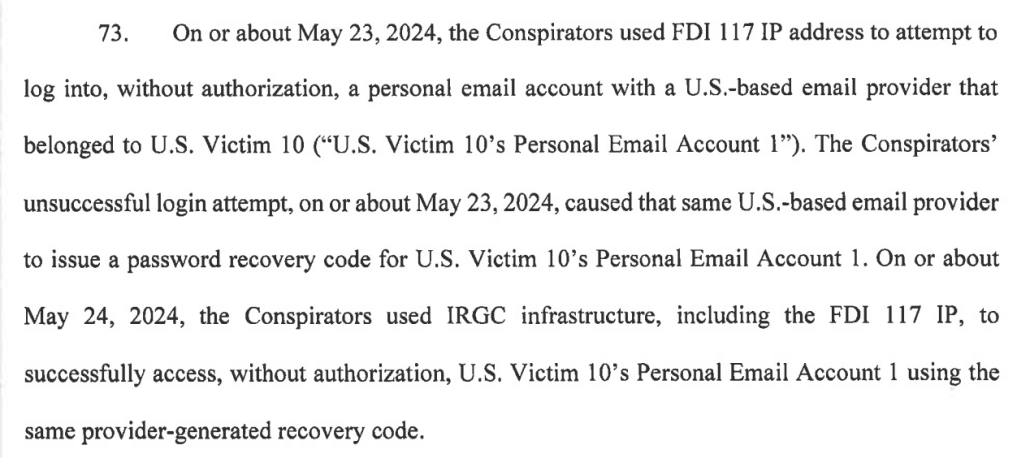Susie’s Assessment: Failure after Failure
The right wing response to the Vanity Fair profile of Susie Wiles (one, two) reveals a lot about the structure of Trump’s power.
While there’s nothing surprising in the profile, Chris Whipple caught Wiles admitting to failures those of outside the White House bubble all recognize, or making laughably false claims to cover them up. And while mostly the response to the profile has been a typical beltway feeding frenzy, much of the focus has been on those expressions of truth or false claims, including how some of them — Wiles’ claims that Trump was targeting Letitia James, her confession that Trump is seeking regime change in Venezuela, Trump’s awareness that Putin wants all of Ukraine — could have lasting legal and political repercussions.
Not so the right wing, though. Theirs has been a two-fold response: first, declaring not that the profile got anything wrong, much less made up any of the abundant direct quotes, but instead that they remain loyal to Susie Wiles. After everyone had performed their expression of loyalty, the right wing turned to complaining that photographer Christopher Anderson captured Trump’s aides’ ugliness and warts.
Behind those expressions of loyalty and vanity complaints, however, the profile includes a string of confessions that Trump, that Susie Wiles, that they all have failed.
Circling the motherfucking wagons
The immediate response was a performance of loyalty. First Wiles claimed in a (for her) very rare tweet that the profile had taken things out of context and ignored positive things she said. Then one after another Trump loyalist RTed that tweet and testified to how great she is and how loyal they are to her or she is to Trump.
The loyalty oaths were particularly amusing to watch through Chris LaCivita’s eyes. First he RTed Wiles’ tweet.
Then he tried to distract with yesterday’s scandal.
Then he posted one…
After another declaration of loyalty to Wiles. This Don Jr tweet — “When others cowered, she stood strong” is quite long and amusing in the original.
Scott Bessent’s claim of inaccuracy is especially notable given how Wiles described half of Trump’s advisors to be opposed to Trump’s tariffs (as I’ll show below).
LaCivita thought dumb boomerang memes would be persuasive.
More celebration of blind loyalty.
Failures hailing her role in their failure.
All leading up to this tweet, from the lady who used to pretend to be objective but now works with the former Trump spox who tried to hide behind the shrubbery, once.
Rachael Bade really did claim it was a big scoop to describe a “Wiles loyalist and Trump ally” explaining what was visible on Xitter for all to see as “circling the motherfucking wagons.”
Sure. It’s clear that’s what you were doing. But honestly, a good many people who read the profiles weren’t seeking to split the White House, they were seeking to understand what Trump’s low-key Chief of Staff does or thinks.
The loyalty that prevents you from seeing the failures she confessed doesn’t prevent us from seeing them.
Karoline Leavitt’s nasty gender-affirming care
Then people started complaining about the photography, particular a picture that revealed the slop on Karoline Leavitt’s face and the injection marks in her lips.
WaPo did a great interview with the photographer, Christopher Anderson, where he explained his view of photojournalism and truth.
I want to talk to you about the portraits that you did for Vanity Fair. As I assume you have heard, they’ve caused a bit of a splash on social media. Can you tell me how you conceived of them?
I conceived of it many years ago. I did a whole book of American politics called “Stump” (2014), where I did all close-ups. It was my attempt to circumnavigate the stage-managed image of politics and cut through the image that the public relations team wants to be presented, and get at something that feels more revealing about the theater of politics. It’s something I’ve been doing for a long time. I have done it to all sides of the political spectrum, not just Republicans. It’s part of how I think about portraiture in a lot of ways: close, intimate, revealing.
[snip]
The images are really arresting. What is your response to people who say that these images are unfair? There’s been a lot of attention about Karoline Leavitt’s lips and [what appear to be] injection sites.
I didn’t put the injection sites on her. People seem to be shocked that I didn’t use Photoshop to retouch out blemishes and her injection marks. I find it shocking that someone would expect me to retouch out those things.
[snip]
Were they coming camera-ready, or was there a hair-and-makeup team?
Most of them came camera-ready or with their own hair-and-makeup team. Karoline Leavitt has her own personal groomer that was there.
I mean, we don’t know if Karoline Leavitt still has that groomer today now that the photos are published.
Well, what can I say? That’s the makeup that she puts on, those are the injections she gave herself. If they show up in a photo, what do you want me to say? I don’t know if it says something about the world we live in, the age of Photoshop, the age of AI filters on your Instagram, but the fact that the internet is freaking out because they’re seeing real photos and not retouched ones says something to me.
Click through for the great quote about Stephen Miller’s plea for kindness.
The self-deceptions and truths from within the bubble
But none of this pushback — none of it — claims that lifelong chronicler of Chiefs of Staff Chris Whipple ever made up a quote.
Accordingly, that means no one has disputed Wiles’ admission that Trump’s policies have largely failed.
Here’s how Whipple summarized Trump’s term so far, close to the beginning of part one:
It’s been a busy year. Trump and his team have expanded the limits of presidential power, unilaterally declared war on drug cartels, imposed tariffs according to whim, sealed the southern border, achieved a ceasefire and hostage release in Gaza, and pressured NATO allies into increasing their defense spending.
At the same time, Trump has waged war on his political enemies; pardoned the January 6 rioters, firing nearly everyone involved in their investigation and prosecution; sued media companies into multimillion-dollar settlements; indicted multiple government officials he perceives as his foes; and pressured universities to toe his line. He’s redefined the way presidents behave—verbally abusing women, minorities, and almost anyone who offends him. Charlie Kirk’s assassination in September turbocharged Trump’s campaign of revenge and retribution. Critics have compared this moment to a Reichstag fire, a modern version of Hitler’s exploitation of the torching of Berlin’s parliament.
How he tells this story — though Wiles’ own assessments of Trump’s success or failure — is more interesting. The following, save the last one, are presented in the order Whipple addresses them in the profile.
End the congressional filibuster and remove Nicolás Maduro from power. [A November portrayal; results still TBD]
The agenda was twofold: ending the congressional filibuster and forcing Venezuelan president Nicolás Maduro from power.
Pardon just those who were January 6 “happenstancers.” [Wiles lies to cover up her failure to achieve this goal]
Wiles explained: “In every case, of the ones he was looking at, in every case, they had already served more time than the sentencing guidelines would have suggested. So given that, I sort of got on board.” (According to court records, many of the January 6 rioters pardoned by Trump had received sentences that were lighter than the guidelines.) “There have been a couple of times where I’ve been outvoted,” Wiles said. “And if there’s a tie, he wins.”
Preserve parts of USAID. [Complete failure, but one Marco Rubio is lying about]
Musk forged ahead—all throttle, no brake. “Elon’s attitude is you have to get it done fast. If you’re an incrementalist, you just won’t get your rocket to the moon,” Wiles said. “And so with that attitude, you’re going to break some china. But no rational person could think the USAID process was a good one. Nobody.”
[snip]
Did Rubio have any regrets about the untold number of lives that PEPFAR’s evisceration might cost? “No. First of all, whoever says that, it’s just not being accurate,” he told me. “We are not eviscerating PEPFAR.
Stephen Miller’s deportation policies. [In Wiles’ estimation, a failure]
Not long after the El Salvador deportation fiasco, in Louisiana, ICE agents arrested and deported two mothers, along with their children, ages seven, four, and two, to Honduras. The children were US citizens and the four-year-old was being treated for stage 4 cancer. Wiles couldn’t explain it.
“It could be an overzealous Border Patrol agent, I don’t know,” she said of the case, in which both mothers had reportedly been arrested after voluntarily attending routine immigration meetings. “I can’t understand how you make that mistake, but somebody did.”
Tariffs. [Wiles failed to prevent Trump’s worst instincts and the results have been worse than she imagined]
Wiles believed a middle ground on tariffs would ultimately succeed, she said, “but it’s been more painful than I expected.”
Invading blue cities. [Wiles says Trump won’t do this to stay in power]
Will the president use the military to suppress or even prevent voting during the midterms and beyond?
“I say it is categorically false, will not happen, it’s just wrongheaded,” she snapped.
November’s election. [Wiles knew they were in trouble, but even so was overoptimistic]
Wiles thought the GOP had a chance of electing the governor in New Jersey, but she knew they were in for a tough night.
The Epstein files. [Trump and Kash, both lying about what was in the files but that’s okay because MAGAts aren’t obsessed with Epstein]
For years, Kash has been saying, ‘Got to release the files, got to release the files.’ And he’s been saying that with a view of what he thought was in these files that turns out not to be right.”
[snip]
Wiles said. “It’s the Joe Rogan listeners. It’s the people that are sort of new to our world. It’s not the MAGA base.”
Murderboats and frivolous wars. [Pure self-deception]
“Not that he wanted to kill people necessarily, but stopping the killing wasn’t his first thought. It’s his first and last thought now.”
[snip]
“He wants to keep on blowing boats up until Maduro cries uncle. And people way smarter than me on that say that he will.”
Russian peace efforts. [Wiles says they’re lying about Russia wanting peace]
Trump’s team was divided on whether Putin’s goal was anything less than a complete Russian takeover of Ukraine. “The experts think that if he could get the rest of Donetsk, then he would be happy,” Wiles told me in August. But privately, Trump wasn’t buying it—he didn’t believe Putin wanted peace. “Donald Trump thinks he wants the whole country,” Wiles told me.
In October I asked Rubio if that was true. “There are offers on the table right now to basically stop this war at its current lines of contact, okay?” he said. “Which include substantial parts of Ukrainian territory, including Crimea, which they’ve controlled since 2014. And the Russians continue to turn it down. And so…you do start to wonder, well, maybe what this guy wants is the entire country.” (In Wiles’s office is a photograph of Trump and Putin standing together, signed by Trump: “TO SUSIE YOU ARE THE GREATEST! DONALD.”)
Trump would only spend 90 days on retribution. [Wiles is in denial]
“Yes, I do,” she’d replied. “We have a loose agreement that the score settling will end before the first 90 days are over.”
In late August, I asked Wiles: “Remember when you said to me months ago that Trump promised to end the revenge and retribution tour after 90 days?”
“I don’t think he’s on a retribution tour,” she said.
Trump’s biggest accomplishments: Peace and the Big Ugly
“I think the country is beginning to see that he’s proud to be an agent of peace. I think that surprises people. Doesn’t surprise me, but it doesn’t fit with the Donald Trump people think they know. I think this legislation [the so-called One Big Beautiful Bill], which funded the entire domestic agenda, is a huge accomplishment. And even though it isn’t popular in total, the component parts of it are. And that will be a very big deal in the midterms.”
That is, like the Epstein scandal more generally, Wiles either invents bubble-wrapped fictions about Trump’s own success, or concedes she, or Trump, has failed.
But Trump’s aides — the people complicit in this failure — don’t care.
They’re just going to circle the motherfucking wagons and demand loyalty.

